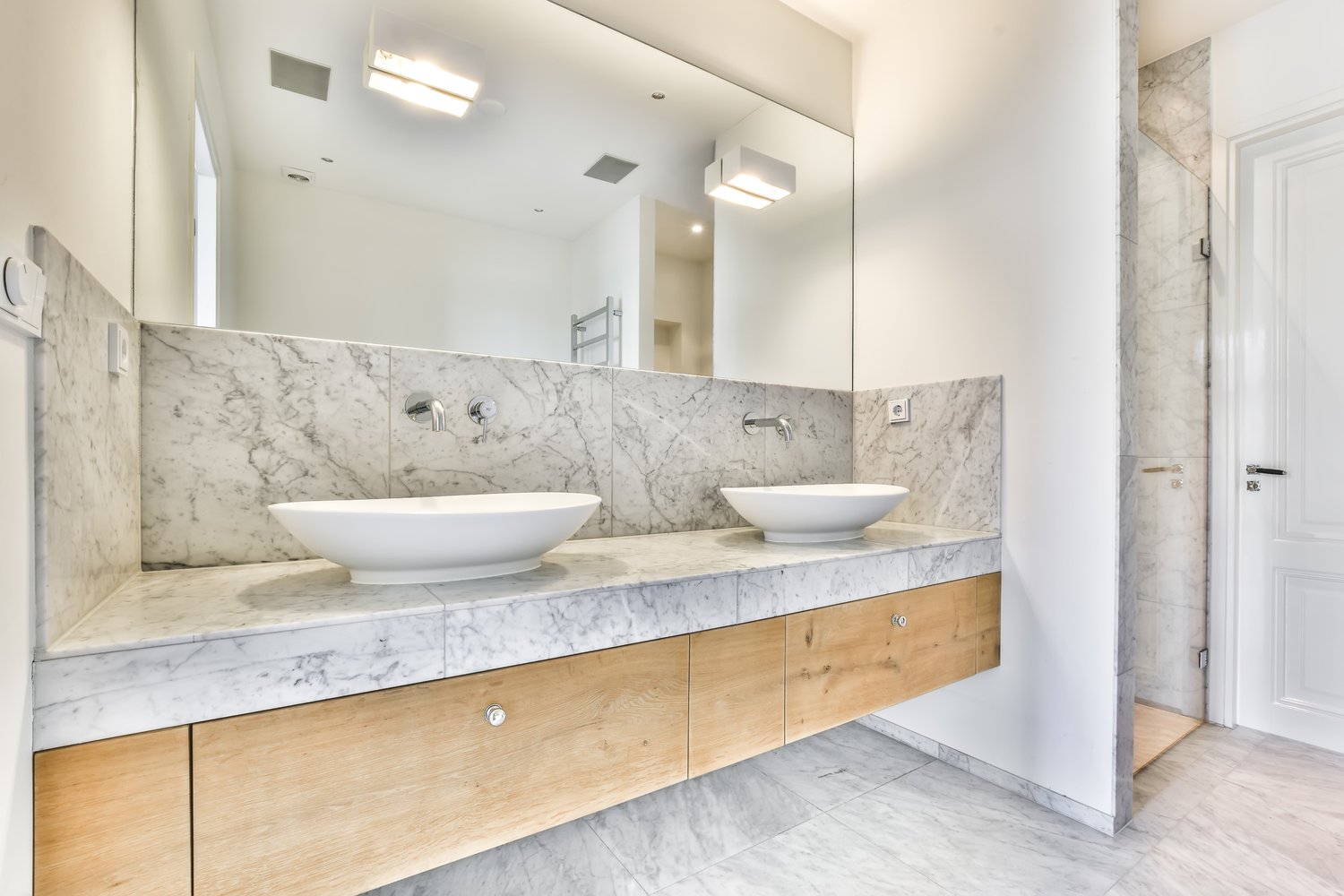Selecting the right flooring for your bathroom requires careful consideration of both functionality and aesthetics. Since bathrooms are high-moisture environments, waterproof bathroom floor materials are essential to prevent damage and ensure longevity. This article explores various bathroom flooring options that combine water resistance with style, comparing popular materials like ceramic and porcelain tile, luxury vinyl, and engineered wood. We’ll examine how each option performs in terms of durability, maintenance, cost, and design possibilities to help you determine the best flooring for bathroom renovations.
Understanding Bathroom Flooring Requirements
Bathrooms present unique challenges for flooring materials. Unlike other rooms in your home, bathroom floors must withstand constant moisture exposure, temperature fluctuations, and cleaning chemicals. The ideal bathroom flooring balances water resistance with comfort underfoot, slip resistance, and visual appeal. When evaluating waterproof bathroom floor options, consider how the material performs when exposed to standing water, its resistance to warping or damage, and whether it harbors mold or mildew. Additionally, installation complexity and maintenance requirements should factor into your decision, as some materials require more specialized care to maintain their appearance and functionality over time.
Ceramic and Porcelain Tile: The Classic Choice
Ceramic and porcelain tiles remain among the most popular bathroom flooring options for good reason. These materials offer exceptional water resistance, durability, and versatility in design. Porcelain, being denser than ceramic, provides superior water resistance and is virtually impervious to moisture when properly installed and sealed. Stylish bathroom tiles come in countless colors, patterns, and textures, from subway tiles to intricate mosaics, allowing for creative design possibilities that can complement any bathroom aesthetic.
One significant advantage of tile is its longevity—a well-installed tile floor can last decades with proper maintenance. Tiles also work beautifully with underfloor heating systems, making cold mornings more comfortable. The main drawbacks include the hard, cold surface (unless heated), and the grout lines that require regular cleaning and occasional resealing to prevent moisture penetration and mold growth. For those concerned about slipping on wet surfaces, textured tiles or smaller tiles with more grout lines offer increased traction.
Luxury Vinyl Flooring: Modern Waterproof Solution
Luxury vinyl has revolutionized the bathroom flooring market in recent years. Available in planks (LVP) or tiles (LVT), this 100% synthetic material provides exceptional waterproof performance while mimicking the look of natural materials like wood or stone. Modern manufacturing techniques have created luxury vinyl products with remarkably realistic appearances and textures that can be difficult to distinguish from the materials they imitate.
Beyond its waterproof qualities, luxury vinyl offers practical advantages for bathroom installations. It’s generally warmer and softer underfoot than tile, making it more comfortable for bare feet. Installation is typically simpler than tile, with many products featuring click-lock systems that can be installed as floating floors over existing surfaces. According to flooring experts at AskHomey, luxury vinyl’s durability and resistance to scratches make it an excellent choice for family bathrooms that see heavy use. While not as long-lasting as tile, quality luxury vinyl can provide 15-20 years of service with proper care and maintenance.
Engineered Wood: A Compromise Solution
For homeowners who desire the warmth and natural beauty of wood but need the best flooring for bathroom environments, engineered wood offers a potential compromise. Unlike solid hardwood, which can warp and swell with moisture exposure, engineered wood consists of a real wood veneer bonded to multiple layers of plywood or high-density fiberboard, creating a more stable product.
While not completely waterproof, high-quality engineered wood with proper sealing can resist moisture better than traditional hardwood. However, it’s important to note that engineered wood remains vulnerable to standing water and high humidity, making it best suited for powder rooms or master bathrooms with vigilant water management. If installed in a full bathroom, spills should be promptly wiped up, and the floor should be resealed periodically according to manufacturer recommendations. The advantage of engineered wood is its authentic wood appearance and warmth that vinyl cannot fully replicate, though this comes with higher maintenance requirements.
Stone and Concrete: Distinctive Alternatives
Natural stone and concrete offer distinctive alternatives for homeowners seeking unique bathroom floors. Materials like slate, marble, limestone, and travertine bring natural variation and luxury to bathroom designs. However, natural stone requires regular sealing to maintain its water resistance, and some varieties can be slippery when wet. Polished concrete, once sealed properly, provides excellent water resistance and can be customized with integral color, stains, or aggregates for visual interest.
Both stone and concrete share certain characteristics: they’re cold underfoot (though compatible with radiant heating), extremely durable when properly maintained, and offer unique aesthetic qualities that manufactured materials cannot replicate. The substantial weight of these materials may require assessment of floor joists before installation, and professional installation is typically necessary, contributing to higher overall costs compared to other waterproof bathroom floor options.
Making Your Final Selection
When making your final decision on bathroom flooring, consider the specific needs of your space. High-traffic family bathrooms might benefit from the durability and low maintenance of porcelain tile or luxury vinyl, while a rarely-used guest bathroom might accommodate the beauty of natural stone or engineered wood. Factor in your budget for both materials and installation, as well as your tolerance for ongoing maintenance. Remember that proper installation is crucial for any waterproof bathroom floor, often making professional installation worth the investment regardless of material choice.
For more tips and to connect with reliable home service professionals, follow AskHomey on Facebook and Instagram.



